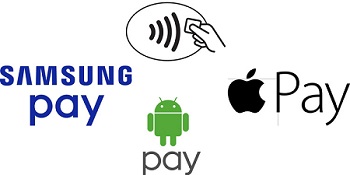41% of UK consumers now view the mobile phone as their preferred alternative to a payment card, according to a study by Mastercard.
The Mastercard Impact of Innovation study1 explored the attitudes to technology among 23,000 consumers in 23 different countries across Europe, Middle East and Africa. Although the UK is one of the most digitally mature markets in the world, the study shows that the British are ready for the next wave of innovation and want to see it in different aspects of life.
Two-thirds of British consumers (63%) believe that generally, innovation is having a positive impact on society but still think that there are some areas that need it more than others.
3 in 4 people think there are already enough – or too many – digital services in online networking, and suggested other areas in greater need of digitisation and innovation, such as public transport and healthcare (76%).
The survey also showed Brits are ready to embrace technology when it comes to making payments.
In 2015, British shoppers reached the tipping point of using cards for more transactions than cash on the high street2. A key driver for this is the simplicity of using contactless cards and devices for ever lower value payments.
Contactless payments are now second nature for many UK shoppers and with mobile payment services such as Apple and Android Pay using contactless functionality, consumers pick their smartphone as the preferred alternative to cash and cards.
The report also found that 82% are regularly shopping online or using e-commerce services (such as Uber). In fact, in January this year Britain’s shoppers reached a second tipping point, as mobile devices such as smartphones and tablets started to account for more than half (51%) of all online sales.
These two milestones indicate the increasingly pivotal role smartphones are having and will continue to have on our spending habits, both instore and digitally.
Dr. Carsten Sørensen, a digital innovation professor at the London School of Economics said: “The British are enjoying a very positive experience with technology, but clearly there is an appetite for even more. The mobile phone is doing what nothing else has managed to do since the launch of the credit card 50 years ago. We cannot leave home without these items and now the card is moving onto the phone. Digital innovation is being driven by a diversity of services like Facebook and Uber, and people will increasingly want to use their devices for payments.”
The convenience of online shopping is underlined by the fact that two-thirds of consumers (64%) have never had a negative experience, although 1 in 5 people say that they have at one time not received what they ordered (18%).
Elliott Goldenberg, head of digital payments for Mastercard UK & Ireland said: “We see the smartphone as the ‘remote control’ for consumers’ financial lives. It will be essential for authenticating transactions, controlling your account, managing payment card functions and more. It is an incredibly powerful and practical tool for payments.”
3 in 4 people expect that in the future, digital services will be used in more and more areas of life, and by more and more people, rather than benefitting the privileged few (76%).
Mastercard’s Goldenberg added: “One of the key drivers to digital and financial inclusion is the role of the mobile. Every member of the population should have access to basic financial products and digital connectivity, and so innovation must ensure that technology creates greater opportunities rather than widening the gap.”
Methodology
The survey was commissioned by Mastercard and carried out by IPSOS Research in the summer of 2016. The survey gathered data from internet users with bank accounts in Mastercard’s 4 global regions: Western Europe (countries: France, Germany, Italy, Sweden, and the UK); Central Eastern Europe (countries: Austria, Bulgaria, Czech Republic, Croatia, Hungary, Israel, Poland, Romania, Serbia, and Slovakia); Russia, Turkey*, and Ukraine*; and the Middle East and Africa (countries: Egypt*, Kenya*, the Kingdom of Saudi Arabia, South Africa*, and the United Arab Emirates). In countries marked with * above, the survey is representative of Internet users, while in all the other countries the survey is representative of the whole population. Sample structure: N=1000 respondents per country, representative sample of online urban population by gender, age and region. Methodology: online self-completed interviews via IPSOS access panel. Questionnaire: 20-minute self-completed online questionnaire.

